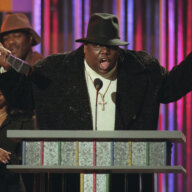Pennsylvania’s new voter-ID law “impermissibly” violates a fundamental right, an attorney for the American Civil Liberties Union and 10 citizen-plaintiffs told the state’s Supreme Court.
“The right to vote is fundamental,” David Gersch, a lawyer for the plaintiffs with the firm Arnold & Porter LLP, told the six-justice panel today in Philadelphia. “The right to vote is the country’s proudest boast and Pennsylvania has been in the forefront of that from the very beginning.”
“Not everything that affects that right is fundamental,” John Knorr, chief deputy attorney general, countered in his arguments to the panel. “Fashioning the regulatory framework is the job of the legislature.”
Today’s arguments came in an appeal by the ACLU of a lower court’s Aug. 15 decision upholding the law, which requires voters to show government-issued photo identification before casting a ballot. Lawyers involved in the litigation said it’s unlikely the justices will rule today and the court hasn’t set a deadline for issuing a decision.
Laws requiring photo identification to vote in battleground states including Pennsylvania and Florida could be the deciding factor in the Nov. 6 presidential election, according to a study released Sept. 11 by researchers at Washington University in St. Louis and the University of Chicago. As many as 700,000 young minority voters nationwide could be kept from the polls by voter-ID laws in several states, according to the study.
Florida, Pennsylvania
More than 100,000 voters under the age of 30 could be barred in Florida and as many as 44,000 in Pennsylvania if the laws in those states are upheld, according to the study.
Pennsylvania is one of nine states requiring voters to show a state-issued ID before casting a ballot. Last month, Commonwealth Court Judge Richard Simpson denied a request to block the law, ruling that the ACLU failed to prove it would disenfranchise voters. Seventeen states require voters to present some kind of photo ID.
Proponents argue the law passed by Pennsylvania’s Republican-controlled legislature is needed to stop voter fraud and enhance the integrity of elections. The ACLU and advocacy groups, including the Advancement Project and the Public Interest Law Center of Philadelphia, say the measure is aimed at keeping some likely Democratic voters away from the polls.
New Card
Pennsylvania’s law, enacted in March, requires a driver’s license or other state-issued ID, or an acceptable alternative such as a military ID, to cast a ballot in November. The Pennsylvania Department of State on Aug. 27 began offering a new identification card for voting as a last resort for those unable to obtain any other state-issued ID.
A state analysis found the photo requirement might exclude as much as 9 percent of Pennsylvania’s electorate from voting in the presidential election.
Democratic President Barack Obama carried Pennsylvania, which has 20 of the 270 Electoral College votes needed to win the presidency, by 620,478 votes in 2008, fewer than the number who might be kept from the polls this November, according to the law’s challengers.
Backed by Pennsylvania Governor Tom Corbett, a Republican, the law follows similar measures passed by Republican-controlled legislatures in other states since Obama’s 2008 victory. Just two states adopted voter-ID laws before 2008.
‘Strict Scrutiny’
The arguments of the ACLU and other advocacy groups before the Pennsylvania Supreme Court hinge on the level of scrutiny Simpson should have applied in evaluating the case. They said in court filings that the proper legal standard, because the law may affect the right to vote, is “strict scrutiny,” which would put the burden on the state to prove why the law is necessary.
Simpson ruled that a “deferential standard” was appropriate, with the court deferring to the judgment of legislature to make rules for elections.
Much of today’s hearing focused on how much deference should be afforded to the general assembly.
“Is the degree of that deference dissipated when an enactment of a legislation is so close to an election, one that impacts state office holders and federal offices?” Supreme Court Justice Debra McCloskey Todd asked Gersch.
‘Considerable Deference’
“The problem for the commonwealth in this situation is that they are burdening the right to vote,” Gersch said. “If this was a mere election regulation that didn’t impose substantive harm then there would be deferential position.”
Legislators should be given “considerable deference” over the substance and timing of the law, Knorr said.
Supreme Court Justice Seamus McCaffery questioned whether the law’s requirement of a specific type of photo ID creates an additional level of qualification to the voting booth that could be considered unconstitutional.
“I would not agree this is an additional qualification,” Knorr responded. “It’s simply a means to establish that you are who you say you are.”
Knorr also discounted as “fantasy” reports that as many as 1.5 million people may be unable to vote in the state on Nov. 6.
“The burden to me is quite minimal,” he said. “Most people can get photo IDs quite easily. We haven’t had any evidence of a single real person who can’t get this.”
Most if not all of the 10 plaintiffs have some form of photo ID, Knorr said.
Two Cycles
Both McCaffery and Todd asked lawyers whether spreading enforcement of the law over two federal election cycles would alleviate any potential burden.
Yes, if all qualified electors are assured an ID, Gersch said. “Those things are matters for the general assembly” Knorr said.
“The rushing of this is not a reason for us to overturn a lower court judge,” Chief Justice Ronald Castille said.
Last month, U.S. courts rejected election-related laws passed by Republican-controlled legislatures in Ohio, Florida and Texas, finding they violated the right to vote. At least 14 cases challenging voter-list purges, provisional-ballot rules, early voting curbs or photo ID mandates are pending in Wisconsin, Colorado, Iowa, Florida and Ohio.
Yesterday, Ohio Secretary of State Jon Husted failed to persuade a federal judge to delay enforcement of an Aug. 31 ruling equalizing the number of early voting days for all the state’s citizens before the Nov. 6 election.
Democratic Parties
The Ohio and national Democratic parties, along with Obama’s campaign, sued Husted in July, arguing it was unconstitutional for the state to grant three more early or absentee voting days to members of the armed forces or Ohioans living overseas than to other voters. U.S. District Judge Peter Economus in Columbus, Ohio, agreed, ruling that all the state’s citizens must be allowed to cast pre-Election Day ballots through Nov. 5.
Overall, the states where photo-ID laws have been enacted would probably see a total drop in turnout by young minorities of as much as 696,000, possibly falling below 2004 and 2008 levels, according to the study by University of Chicago political science professor Cathy J. Cohen and Jon C. Rogowski of Washington University. Across the country, at least 16 competitive races for the House of Representatives have photo identification requirements that are likely to affect minority voters disproportionately, they concluded.
Even so, the professors acknowledged “a variety of challenges associated with ascertaining the likely consequences of these laws,” because of the difficulty in determining how many Americans lack valid government-issued identification and because results differ by state.
The case is Applewhite v. Commonwealth of Pennsylvania, 71 MAP 2012, Supreme Court of Pennsylvania.





























